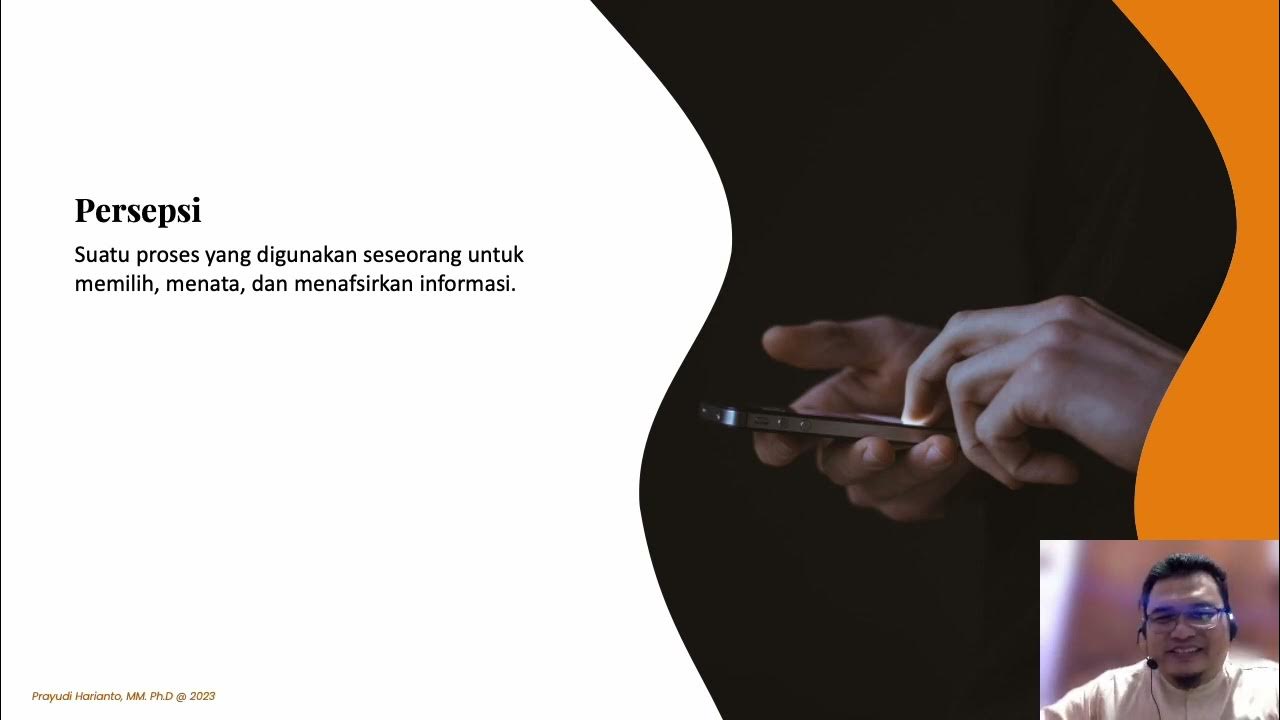Pengantar Manajemen Ep.06 || Semester 1 - 2024 || Pengambilan Keputusan Dalam Manajemen - (part 1)
Summary
TLDRIn this insightful lecture on management decision-making, the speaker discusses the nature of problems as deviations from expected outcomes, emphasizing the importance of identifying causes. They outline the decision-making process, which includes defining the main problem, gathering relevant facts, considering alternatives, taking action, and evaluating results. Various definitions by experts highlight the conscious choice involved in decision-making. Additionally, the lecture categorizes decisions into programmed, non-programmed, and those made under risk or uncertainty. The speaker also covers the phases of decision-making: intelligence, design, and selection, showcasing techniques that leverage scientific methods for effective outcomes.
Takeaways
- 😀 Problems are defined as deviations between expected outcomes and actual results, necessitating identification and verification of their causes.
- 😀 Decision-making involves evaluating options and selecting the best course of action to achieve specific goals or solve problems.
- 😀 Poor decision-making can stem from limited perspectives, over-reliance on past experiences, and excessive confidence.
- 😀 The decision-making process includes several steps: identifying the main problem, developing alternatives, evaluating options, taking action, and reviewing results.
- 😀 Identifying the core issue is crucial for effective problem-solving and decision-making.
- 😀 It is important to list and analyze potential alternatives to find the most effective solution to a problem.
- 😀 Experts like Grter and George Jr. emphasize the importance of using logical criteria and conscious evaluation in the decision-making process.
- 😀 There are different types of decisions: programmed decisions for routine situations and non-programmed decisions for unique challenges.
- 😀 Decisions often involve varying levels of risk and uncertainty, requiring careful assessment of potential outcomes.
- 😀 Continuous learning and review of past decisions can enhance future decision-making effectiveness.
Q & A
What is the primary focus of the discussion in this video?
-The primary focus is on decision-making in management, particularly how to identify problems and make informed decisions.
How is a problem defined in the context of management?
-A problem is defined as a deviation between expected outcomes and actual results, necessitating the identification and verification of underlying causes.
What are some common reasons for poor decision-making by managers?
-Common reasons include reliance on limited perspectives, past experiences, maintaining the status quo, and overconfidence.
What are the five steps in the decision-making process outlined in the video?
-The steps are: 1) Identify the problem, 2) Gather relevant information, 3) Analyze alternatives, 4) Make a decision, and 5) Evaluate the effectiveness of the decision.
According to experts, what does decision-making involve?
-Decision-making involves selecting from multiple alternatives based on specific criteria and is a conscious process that includes evaluation and selection.
What are the two main types of decisions mentioned?
-The two main types are programmed decisions, which are routine and follow established guidelines, and non-programmed decisions, which are unique and require more analysis.
What are the three phases of decision-making discussed in the video?
-The three phases are the intelligence phase (gathering information), the design phase (developing strategies), and the choice phase (selecting the best strategy).
What techniques are recommended for effective decision-making?
-Operational research and scientific methods are recommended for analyzing decisions effectively, helping managers make informed choices.
Why is it important for managers to evaluate the effectiveness of their decisions?
-Evaluating effectiveness is crucial to determine whether the decision achieved its intended objectives and to learn from the outcomes for future decision-making.
What role does gathering relevant information play in the decision-making process?
-Gathering relevant information is essential for understanding the context of the problem, which helps in analyzing alternatives and making informed choices.
Outlines

Dieser Bereich ist nur für Premium-Benutzer verfügbar. Bitte führen Sie ein Upgrade durch, um auf diesen Abschnitt zuzugreifen.
Upgrade durchführenMindmap

Dieser Bereich ist nur für Premium-Benutzer verfügbar. Bitte führen Sie ein Upgrade durch, um auf diesen Abschnitt zuzugreifen.
Upgrade durchführenKeywords

Dieser Bereich ist nur für Premium-Benutzer verfügbar. Bitte führen Sie ein Upgrade durch, um auf diesen Abschnitt zuzugreifen.
Upgrade durchführenHighlights

Dieser Bereich ist nur für Premium-Benutzer verfügbar. Bitte führen Sie ein Upgrade durch, um auf diesen Abschnitt zuzugreifen.
Upgrade durchführenTranscripts

Dieser Bereich ist nur für Premium-Benutzer verfügbar. Bitte führen Sie ein Upgrade durch, um auf diesen Abschnitt zuzugreifen.
Upgrade durchführenWeitere ähnliche Videos ansehen
5.0 / 5 (0 votes)






